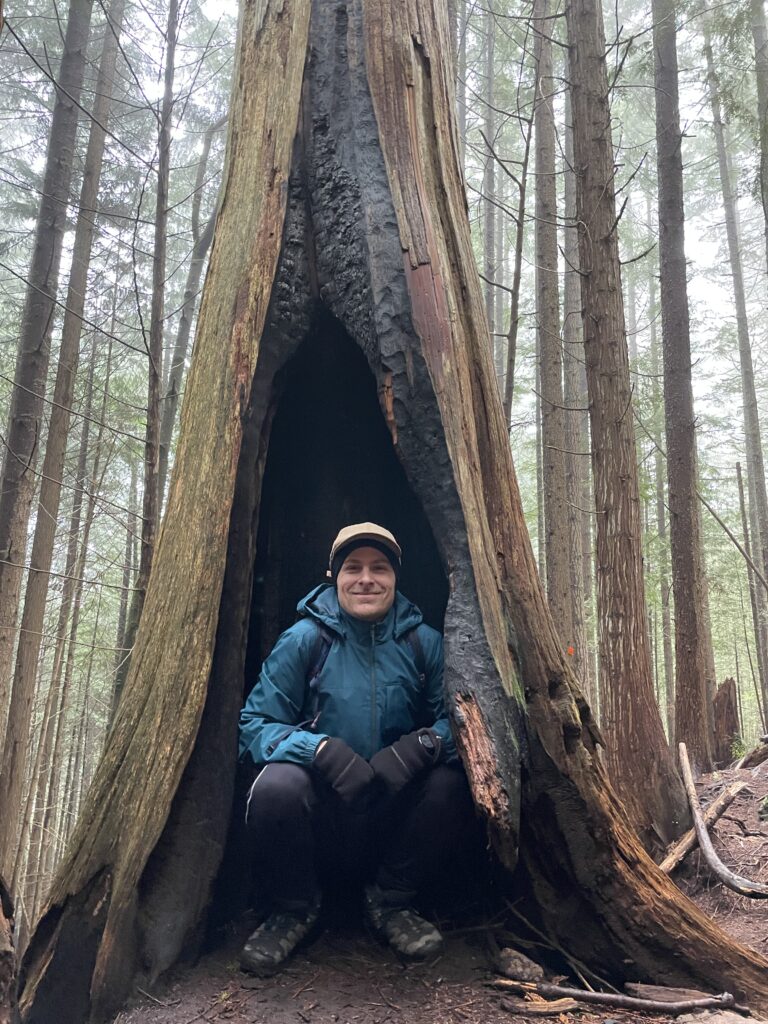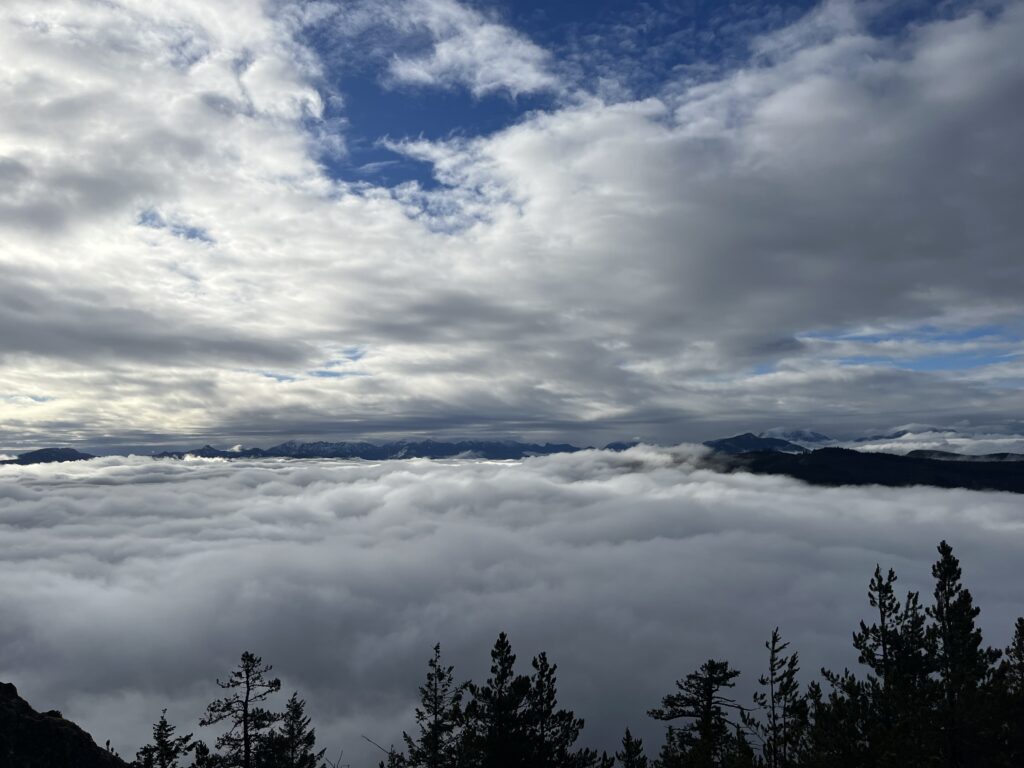On January 3rd, my partner and I went stayed in a cabin next to Westwood Lake Park near Nanaimo. Our trips almost always consist of eating great food and exploring nature, and this one was no different. We hiked up Mt. Benson and tracked the route on Strava:

We were quickly immersed in a thick forest, with the hiking being a typical switchback route that was quite steep. It was peaceful, with no sound of cars or any city life. Instead, the only sounds we heard were those from our feet, other hikers, and the wind rustling the branches. Not too long into the hike, we found this Western Red Cedar that appeared to have been burnt just high enough to allow us to burrow inside of it:

Western red cedars have a long history on Vancouver Island and make up some of the oldest, biggest trees that exist here. In fact, the largest tree in Canada is a red cedar by the name of “The Cheewhat Giant”, which spans over 6 meters in trunk diameter and 56 metres high. It is these types of trees (as well as others) that help make up the old-growth forest that provides such rich biodiversity on the island. Known for its reddish-brown bark, aromatic wood, and resistance to decay, the tree holds cultural significance for indigenous peoples who have traditionally used it for various purposes, from crafting totem poles and canoes to weaving baskets. Vancouver Island’s moist climate provides an ideal habitat for these trees, supporting biodiversity and offering recreational opportunities for outdoor enthusiasts. Conservation efforts are crucial to sustain the health of Western red cedar populations and preserve their ecosystems in this region.

Protecting old-growth forests is paramount for their diverse ecological roles, as they foster biodiversity, act as crucial carbon sinks, regulate water cycles, and provide habitats for endangered species. Preserving these ancient stands contributes to genetic diversity, ensuring resilience in the face of environmental changes. Old-growth forests also offer recreational and aesthetic value, benefiting communities, and serve as valuable sites for scientific research on complex ecological processes. The conservation of these ecosystems is essential for mitigating climate change, maintaining water resources, and sustaining the overall health of our planet, emphasizing the need for a balanced approach to human activities to ensure a harmonious coexistence with these irreplaceable natural environments.